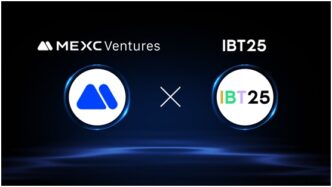Introduction
Blockchain technology, once an obscure concept, has evolved into a transformative force in the world of business and technology. Blockchain is not just about cryptocurrencies like Bitcoin; it’s a distributed ledger technology with the potential to revolutionize various industries. In this article, we will explore how blockchain is reshaping business operations, streamlining processes, and redefining trust in the digital age.
The Basics of Blockchain
At its core, blockchain is a decentralized and immutable digital ledger that records transactions across a network of computers. The term “block” refers to a collection of data, and “chain” signifies the linking of these blocks together. Here’s how it works:
- Decentralization: Unlike traditional centralized databases, blockchain operates on a network of computers (nodes) distributed across the globe. This decentralized structure eliminates the need for intermediaries.
- Transparency: Every transaction is recorded in a public ledger that anyone can access. This transparency ensures trust and accountability.
- Security: Each block contains a unique code, or hash, that is created based on the contents of the previous block. If one block is tampered with, it disrupts the entire chain, making it virtually impossible to alter past entries without consensus from the network.
- Smart Contracts: Blockchain technology allows for the creation of smart contracts – self-executing agreements with the terms of the contract directly written into code. These contracts automatically enforce the terms when predefined conditions are met.
Transforming Industries
- Finance and Banking: Blockchain has disrupted the financial sector by simplifying cross-border payments, reducing transaction costs, and enhancing security. Moreover, it has enabled the creation of decentralized financial systems, often referred to as DeFi (Decentralized Finance).
- Supply Chain Management: Companies are using blockchain to monitor and authenticate the flow of goods throughout the supply chain. This technology enhances transparency, reduces fraud, and minimizes inefficiencies.
- Healthcare: In healthcare, blockchain ensures the secure sharing of patient records, protecting sensitive medical data while allowing for efficient access by authorized parties.
- Real Estate: Blockchain is simplifying real estate transactions by automating the process, reducing fraud, and ensuring a tamper-proof history of property records.
- Government and Identity: Governments are exploring blockchain to create secure digital identities, streamline voting systems, and improve transparency in public services.
- Entertainment and Media: Blockchain is revolutionizing content distribution, offering artists and content creators the ability to receive fair compensation for their work through microtransactions and royalties.
Redefined Trust
Blockchain has fundamentally changed the way trust is established in the digital age:
- Trust in Data: The transparency and immutability of blockchain records have made data more trustworthy. This is particularly crucial in industries like finance, healthcare, and legal services.
- Trust in Transactions: Blockchain eliminates the need for intermediaries in transactions, reducing costs and increasing trust in peer-to-peer exchanges.
- Trust in Identity: Blockchain enables secure, self-sovereign digital identities, allowing individuals to have control over their personal data and who has access to it.
- Trust in Smart Contracts: Smart contracts provide trust in the execution of agreements, as they are automated, tamper-proof, and self-enforcing.
Conclusion
Blockchain business applications are transforming industries, reshaping business operations, and redefining trust in the digital era. As blockchain technology continues to evolve, it is crucial for businesses to understand its potential and adapt to this new paradigm. Whether you’re in finance, healthcare, supply chain, or any other industry, the integration of blockchain can enhance transparency, efficiency, and trust in your business operations, offering a bright future for innovation and growth.













